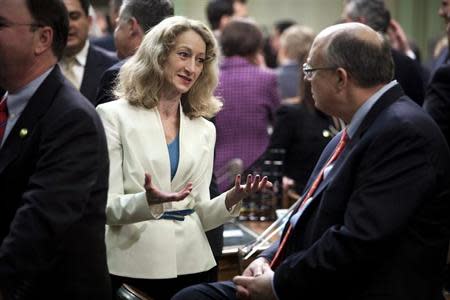Venture capitalist in bid to split California into six states

By Dan Whitcomb and Laila Kearney LOS ANGELES (Reuters) - A venture capitalist seeking to break California into six new states has won approval to begin collecting signatures needed to get his plan on the ballot in November, but experts said such a measure likely stands little chance of success. The proposal, which would also require approval by the Congress, would split California into six new states called Jefferson, North California, Silicon Valley, Central California, West California and South California. Under the plan, Los Angeles and Santa Barbara would be part of "West California," while San Francisco and San Jose would be in "Silicon Valley." "California, as it is, is ungovernable," proponent Tim Draper, founder of the venture capital firm Draper Fisher Jurvetson, said in a statement released by his office on Thursday. "It is more and more difficult for Sacramento to keep up with the social issues from the various regions of California. With six Californias, people will be closer to their state governments and states can get a refresh," Draper said. California Secretary of State Debra Bowen said on Tuesday that the proposal needs the signatures of 807,615 registered voters by July 14 to qualify as a ballot measure in November's elections. Representatives for the Six Californias initiative declined to comment beyond Draper's statement. A spokesman for Governor Jerry Brown also declined to comment. But political experts said that like most such break-up bids, such a dramatic move faces major challenges in California, the most populous U.S. state. "This is really just a hypothetical question. It's not going to happen," said Stanford Law School professor Nate Persily, citing a likely resistance by Californians to being broken into separate states. Persily also cited the cost and complications of establishing six new governments, each with its own state capital and representatives in Washington, D.C. David Carillo, executive director of the California Constitution Center at the University of California, Berkeley, School of Law, agreed, saying the U.S. Constitution could also be interpreted to require approval of such a move by the California state legislature. Carillo also said the U.S. Congress was unlikely to get on board with the plan. "One could wonder whether Congress would look favorably on adding five new stars to Old Glory," he said. (Reporting by Dan Whitcomb and Laila Kearney; editing by Amanda Kwan and G Crosse)
